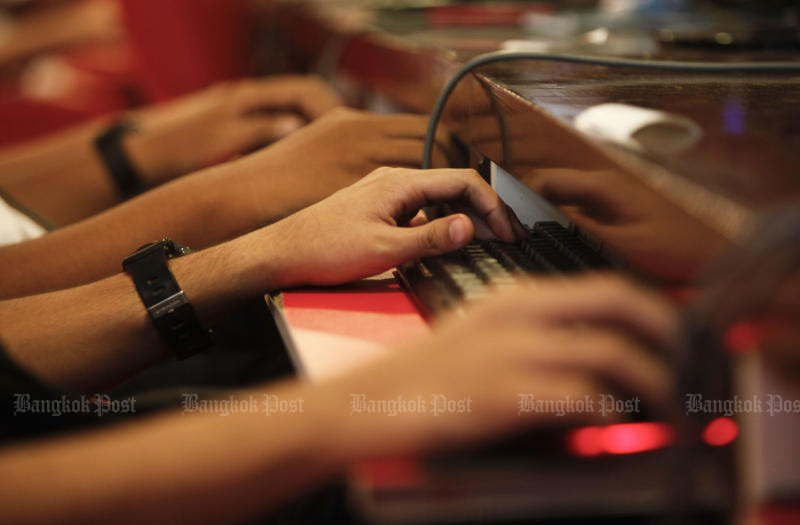
Activists defending free speech online say they will push for changes to the controversial computer crime law following an uproar over its data retention requirement.
Arthit Suriyawongkul, coordinator of Thai Netizen, said the group will mobilise support for the law amendment from the House committee on telecommunications, digital economy and society.
He said the data retention requirement under Section 26 of the Computer Crime Act is being targeted for revision as one of several elements that stifle civil rights.
The move to push for amendments to the law was rekindled after the Digital Economy and Society Minister Buddhipongse Punnakanta on Tuesday told owners of coffee shops to hand over their customers' WiFi browsing histories as part of the ministry's campaign against fake news.
The ministry said the data would be used by its anti-fake-news centre to monitor and investigate people who disseminate inappropriate information online in violation of Section 26 of the Computer Crimes Act.
Critics say the move is more proof that legislation is being abused by security agencies to target political dissent and hamper civil rights, not computer crime.
Mr Arthit said the civil sector is seeking cooperation from the House committee on telecommunications, digital economy and society in initiating amendments to the computer crime legislation.
Section 14 and Section 20 are among top concerns, he said.
Section 14 covers offences involving entering of information that causes "damage to the public, creates panic, or causes harm to public infrastructure, national security, public security or economic security" while Section 20 deals with censorship of "inappropriate" computer data by a computer data screening committee before a court approval.
Mr Arthit questioned the merit of Section 26, saying he did not believe it was an effective tool of deterrence.
He said the costs of storing the data would be absorbed by business operators or non-profit entities like universities, and these establishments might decide to terminate their internet access over concern of the risk of legal action.
However, he declined to offer an estimate of the financial cost of data retention.
"This law is designed to catch bad people, but it won't be able to do that because criminals know how to acquire personal data of others and use it to access the internet and do bad things," he said.
"Does the government really think they can catch bad people with this? Or is it just a way to threaten people with the knowledge that they are being watched?" he said.
Sutawan Chanprasert, coordinator of internet researcher Digital Reach, said compliance with the data retention requirement came with a cost, and the measure is placing a burden on business operators who may not know how to safely store data.
"The order [to keep log files] is broad and its purpose has not been explained, except that the data is for monitoring. The measure is based on security concerns and has no regard for privacy rights," she said.
Bhumjaithai list-MP Col Settapong Malisuwan, deputy chairman of the House committee on telecommunications, digital economy and society, said the panel welcomes public comments on the measure.
Col Settapong, a former member of the National Broadcasting and Telecommunications Commission, said if enforcement of the law is a cause for public concern, the committee is ready to review the proposed amendments.
Meanwhile, deputy police spokesman Pol Col Kritsana Pattanacharoen said the data retention measure is nothing new and keeping log files is a standard practice used by several countries to crack down on criminals.
He insisted the requirement was in the public interest and offered a tool to help law enforcement track down suspects in criminal investigations such as online scams.
He added the costs of storing data are shouldered by those providing internet access, not the users, who have nothing to worry about the measure.
Deputy Prime Minister Prawit Wongsuwon said the data retention requirement is not a violation of privacy and what the authorities are asking for is the public's cooperation.